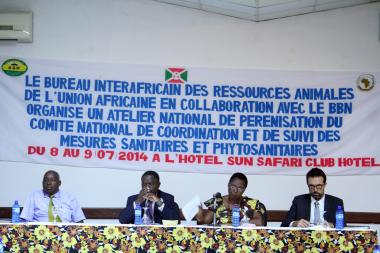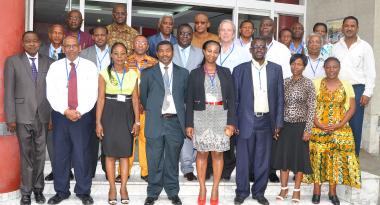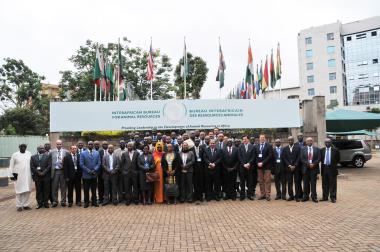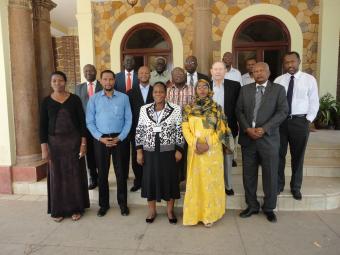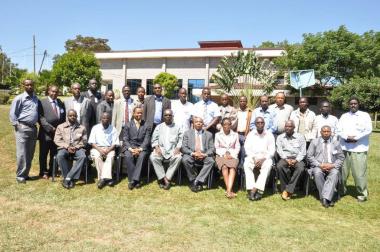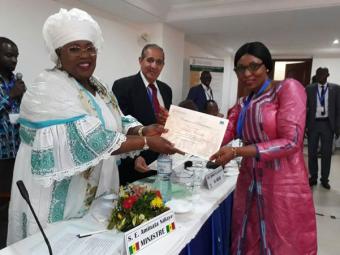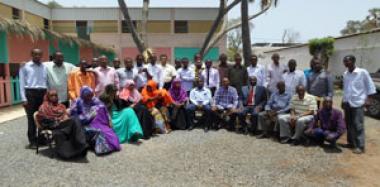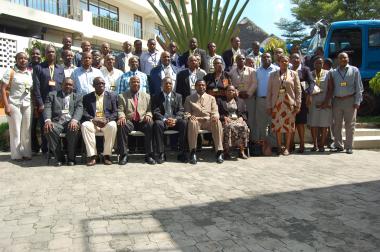The livestock sector in Africa faces numerous challenges that hinder its growth and have significant implications for food security, economic development, and social stability across the continent. These challenges include high rates of child stunting, dependence on cheap imports, ongoing resource-based conflicts, and the unaffordability of nutrient-dense foods. It is crucial that urgent attention is given to these complex issues and strategic interventions are implemented.
Meeting the nutrition targets set in the Malabo Declaration has proven to be consistently difficult. The 4th Biennial Review Report (BRR) data shows that reducing child stunting remains a long-standing challenge in Cameroon. Alarmingly, 28.7% of children in Cameroon suffer from chronic malnutrition. This not only has a negative impact on the health and well-being of future generations, but also places significant socio-economic burdens on communities and the nation as a whole.
Cameroon heavily relies on cheaper imports of livestock-sourced foods, which hampers the growth of domestic livestock industries. This dependence undermines local producers and deprives African economies of valuable opportunities for job creation, especially for young people. Recent estimates reveal that this reliance has resulted in a staggering loss of USD 110 billion, representing 21.3% of potential economic growth.
Resource-based conflicts, often driven by competition for land, water, and grazing resources, persist in Cameroon. These conflicts directly affect communities that rely on livestock for their livelihoods, contributing to insecurity, displacement, and loss of lives and livelihoods. With 19.3% of the population affected by such conflicts, it is urgent to establish sustainable mechanisms for conflict resolution. Despite the crucial role that nutrient-dense livestock-sourced foods play in combating malnutrition and improving food security, they remain inaccessible for a significant portion of the population due to high prices. Efforts to enhance affordability and accessibility of these essential foods are crucial to addressing nutrition challenges in the continent.
The dairy sector plays a crucial role in Cameroon's economy, supporting food security, employment, rural development, and poverty alleviation. However, the sector faces market failures due to feed and fodder shortages, which impact milk production. Currently, Cameroon has a cattle herd of 10 million that operates under traditional extensive pastoralism and emerging semi-intensive systems. Both systems face challenges of low milk production and fodder scarcity. Local breeds such as Goudali, White Fulani, and Red Fulani have lower productivity compared to exotic breeds like Holstein, Montbeliard, and Simmental, producing an average of 2 liters per day over a lactation period of 168-171 days, much lower than exotic breeds.
Cameroon's current milk consumption is 6.67 liters per person per year, falling short of the FAO standard of 22 liters per person annually. With a population of approximately 25 million, this deficit translates to an annual milk shortage of approximately 383,250 tons. To address this, the Government of Cameroon implemented an import-substitution policy and established the National Milk Sector Development Plan (PNDFL).
However, the sector faces challenges such as livestock feed and fodder shortages due to various factors, including seasonal natural pastures, climate change-induced droughts, limited access to water sources, low breed productivity, difficulties in accessing plant genetic resources, land constraints, and inadequate financial services. Addressing these challenges requires investment in pasture management, climate-resilient agricultural practices, infrastructure development, breeding programs, and improved access to financial resources. Overcoming these challenges is vital for the dairy industry in Cameroon to achieve self-sufficiency in milk production, contribute to national development, and ensure food security.
The issue of food and fodder shortage in Africa, particularly in the Sahel and Savanna regions, requires urgent attention as we address climate change, population growth, and socio-economic challenges. Adopting innovative approaches to promote food security is crucial. The Association for the Promotion of Livestock in the Sahel and Savanna (APESS) offers practical solutions to address some of these issues.
In an effort to enhance food security and increase livestock productivity in Cameroon, stakeholders have convened in Yaoundé to launch Cameroon's Multi-Stakeholder Feed and Fodder Platform (MSP). This initiative is a significant step in tackling the challenges facing the feed and fodder sector, particularly in light of the triple C crises of COVID-19, Climate change, and Conflicts. During the meeting, participants discussed strategies to promote collaboration, foster innovation, and address systemic obstacles that hinder the sector's growth. The establishment of the MSP signifies a joint commitment to transforming the feed and fodder sector for sustainable development.
To assess the impact of these crises on feed and fodder systems, the Resilient African Feed and Fodder Systems Project (RAFFS Project) conducted a comprehensive study across six key African countries, including Cameroon. The findings showed the urgent need for strategic interventions to strengthen the resilience and efficiency of these systems, which are crucial for sustaining livestock-based livelihoods and ensuring food security.
During the meeting, Mr. Jaji Manu Gidado, the Secretary General of the Ministry of Livestock, Fisheries, and Animal Industries (MINEPA), emphasized the significance of feed and fodder development. He highlighted its role in driving livestock productivity and mitigating conflicts between farmers and herders. Globally, 60% of grain production is dedicated to animal feed, but this figure remains alarmingly low in Africa, posing challenges to livestock farming.
In response to these challenges, African Union Heads of State and Government have endorsed decisive actions to address feed shortages and prevent future disasters. These actions include formulating guidelines for the development of the feed and fodder sectors, establishing emergency response mechanisms, creating multi-stakeholder platforms, and implementing monitoring frameworks.In order to tackle the challenges in the feed and fodder sector, it is essential for the government, policymakers, and stakeholders to take a comprehensive approach to revitalize the livestock sector and harness its potential as a catalyst for sustainable development.
This approach should prioritize investments in local livestock production systems, promote sustainable practices, and enhance productivity in order to reduce dependence on imports and stimulate economic growth. Moreover, efforts to address resource-related conflicts should be intensified by fostering dialogue, promoting social cohesion, and implementing fair resource management strategies that can ease tensions and promote stability. Additionally, initiatives to promote the consumption of nutritious foods derived from livestock should be given priority. Strategies to empower youth and create job opportunities within the livestock sector, such as vocational training, support for entrepreneurship, and improved access to finance and markets, should also be implemented.
The MSP aims to bring together stakeholders from various sectors in order to establish a structured and resilient feed and fodder sector that supports increased livestock productivity, facilitates trade, and creates jobs. Mr. Gidado emphasized the crucial role of feed and fodder in livestock production, highlighting its significance in the development strategy for rural areas. He praised the efforts of stakeholders in advancing animal nutrition and expressed optimism about the sector's potential for growth and innovation.
About AU-IBAR:
AU-IBAR operates as a technical office within the African Union Commission, with a core mission to support African Union member states in harnessing the potential of animals for human well-being and economic development. The organization plays a pivotal role in coordinating and advancing livestock development across the continent.
Note to Editors:
For additional information, please visit AU-IBARs website on RAFFS
For more Project information contact Dr. Sarah Ashanut Ossiya - sarah.ossiya@au-ibar.org
For communications and media inquiries, contact: Fiona Imbali- fiona.imbali@au-ibar.org

